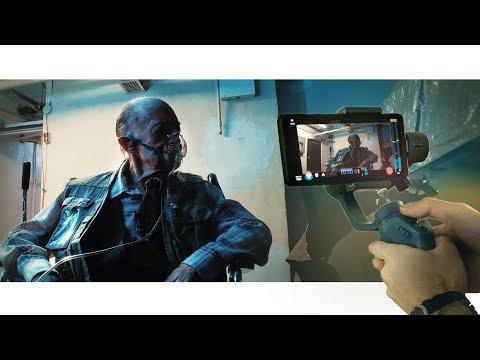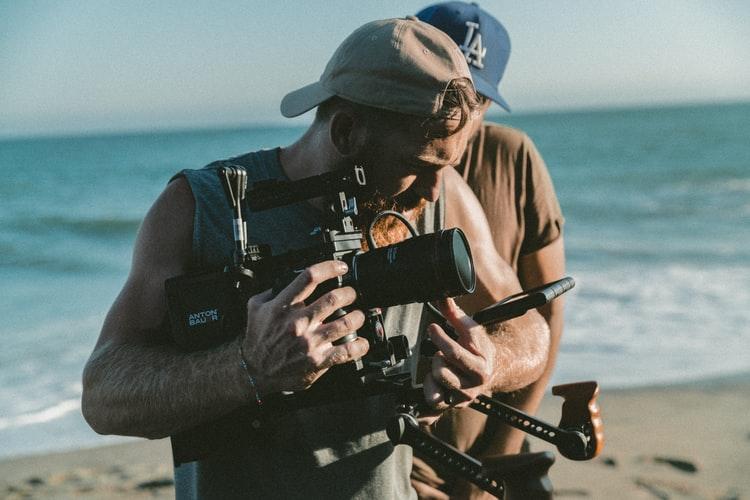Many students feel excited about starting the filmmaking courses at a college or university. And how can they not be? They have a unique opportunity to let their creativity flow and finally start the journey to become Hollywood’s top film producers and directors.
Then the reality hits. Students learn that before they become the next Spielbergs, Tarantinos, and Kubricks, they need to get more experience, which means practicing filmmaking.
But how can you get the filmmaking experience while you’re still at school? And how can you make films that tell stories if you don’t have the money for it?
Filmmaking on the budget is complicated but definitely not impossible. And if you are determined to get the filmmaking experience but are struggling financially, here are a few useful tips on how to tell stories through movies but also saving some bucks.
1. Use the Equipment You Already Have
For a beginner in filmmaking, it’s not necessary to own expensive cameras, microphones, and other gear to shoot a movie. You can practice all the angles with any equipment you have on hand.
For instance, Kris from Kriscoart has created a short film only using a smartphone:
The entire movie is created using a Samsung phone and a monopod holder for a stable image. That’s enough to create raw footage of a heartwarming story of a young man showing his grandpa the world outside his nursing home.
Of course, the quality of the image matters a lot. So, if your phone’s camera has poor resolution, it will be hard to create impressive imagery with it. In this case, you can resort to filmmaking gear rentals, where you can borrow all the equipment. Check if your school offers such services.
Besides expensive gear, another thing that beginners in filmmaking worry about is editing software. Indeed, video editing solutions can be quite costly – as much as $100 per subscription, depending on how many editing tools you need.
However, it’s not necessary to edit your films using expensive software right away. You can start with free solutions like iMovie, Shotcut, VideoPad, and others. They have all the basic video editing toolkits you need.
Getting content for your videos also doesn’t have to be expensive. For instance, if you’re shooting an educational video and need essay samples to share with your audience, you can visit a database like https://subjecto.com/essay-samples/, where there are plenty of examples on different topics.
Beginning filmmakers also often worry about the music they will put in their films. Obviously, you can’t put any song or a tune in your short movie – somebody will claim it, and you can even get into legal trouble. Yet, music is an important part of telling a story.
Luckily, you can take advantage of royalty free stock music and pick a tune from different collections to match the atmosphere of your film and to emphasize the certain moments of a story to make it more memorable.
2. Create a Set using Free Locations
It’s true that big filmmaking studios sometimes spend thousands of dollars on renting locations for movies. This measure is necessary since a studio often needs to shoot in one location for several weeks, and it cannot go unnoticed by the location owners or the local government.
But for independent filmmakers, it’s not necessary to pay for any locations. There are plenty of places around your town or city where you can film for free.
So, look around for free permit areas around you, where filming is allowed. You can also ask your school for help with scouting free locations. But while you take advantage of areas free from permit, start building partnerships with people who own different locations and could give you permission for filming. You might not need that right now, but such connections can come in handy later in your career.
3. Recruit Actors from Your College or University
One more thing that can be quite costly is hiring actors for your filmmaking project. Of course, we’re not talking about high-profile actors, but even freelancers aren’t sometimes the best option if you’re on a budget. For example, top freelance actors on Upwork can charge up to $125 an hour.
So, the best solution here is to get some drama school actors from your college or university to participate in your project. They will be more than interested in contributing since they also need the experience to add to their resume.
You can do the same with scriptwriters. An experienced scriptwriter costs an arm and a leg. If you don’t have the skill to write the script yourself, you can search for students like you who can help get your ideas organized and build dialogues. You can also involve these students in casting actors for your film. Afterward, you’ll have the full production team working with you.
4. Distribute Your Short Films through Free Platforms
Lastly, how can you let the world know about your film?
Of course, the only option is to look for free broadcasting platforms where everyone can access your film. Here are a few options:
- YouTube. It’s an obvious choice for most filmmakers – you can upload videos of any length and even monetize them if you get a decent number of subscribers.
- Filmhub. This is a platform where all indie filmmakers can upload their movies without losing the rights and completely for free.
- Vimeo. This platform also allows a free subscription and distribution of your films. There’s also a monetization option.
Apart from getting your film on free video distribution platforms, you can also create your own online portfolio or a website to showcase your films or their parts. Having an online portfolio is strong proof of your experience and professionalism as a filmmaker.
That’s a Wrap!
Filmmaking is often romanticized. Students often see it in glamour - loaded with all the fancy equipment, sets, and actors surrounding them.
However, the reality of becoming a successful filmmaker is quite messy and chaotic. You’ll have to pave your own way to the Hollywood hall of fame, often starting with indie movies filmed with cheap cameras and edited using free software.
But is it really difficult to tell your story? Absolutely not! If you’re determined enough, you can make a film on a budget using basic equipment, free resources, and locations. You can also work with student actors from your school.
Distributing your film also doesn’t have to be expensive or even paid. So, don’t let the money problems stop you from telling your story and becoming a successful filmmaker!






Pingback: The Best Software for Creating Motion Graphics - stockmusic.net Blog
Pingback: Videography vs Cinematography: The Defining Differences - stockmusic.net Blog
Pingback: Top Picks for Cameras With the Best Autofocus